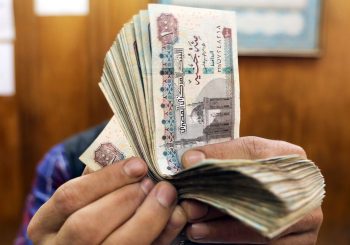From social media to entertainment to music, there are applications for just about everything now – and ride sharing is no exception to that rule. As innovative solutions to Egypt’s transportation issues continue to pop up, Go-Go Car is the latest app aiming to make traveling around Egypt easier through carpooling.
Whether it’s the summer or winter, you’ll surely be traveling to one of the popular holiday destinations within Egypt like the North Coast or Ain Sokhna. Chances are, you’ve noticed how hard it is to find decent and affordable transportation to your desired destination. Go-Go Car offers people an option to travel safely with a reasonable price, and make friends on their trip.
Egyptian Streets interviewed Ibrahim Khater, the founder of Go-Go Car, to learn more about the startup.
Give us a description of Go-Go Car.
A carpooling app for travel roots. If you’re going from Cairo to the North Coast and you can’t find a ride, you open the app and find people going in the same direction; you choose the most suitable ride. We aim to build a community. You travel with people to get to know them. The person you’re traveling with most likely is going to be a new friend. We’re trying to build a community because it’s a travel route it’s a long journey. The safety procedures is one of our main concerns – what we spend most of our time on and how we can verify each profile to make sure that anyone who has access to posting a ride or requesting a ride, is someone we trust. Meaning they have no previous record I would be comfortable riding in the car with them, if we look at how we verify them it’s someone you look at their profile and you would decide, “I would ride with him.” It needs your own approval. There are preferences like smoking preferences. Passengers can write a comment about the driver [and] then users have a wall with the comments on their behavior from previous rides.
How do you ensure the safety of both the drivers and the passengers?
Our verification process is quite long. For the driver, you check the driving license, the car license, his Facebook profile, his number and his email. We also do a background check on the driver by taking their ID and checking if they have any problems like previous records. If he has previous records we won’t accept him in the community. We do the same for passengers except for the car license part.
How do you work on making the price affordable?
The pricing all depends on the person who is driving. We set a maximum for the driver to make sure they don’t get too greedy. So for example, a ride to the North Coast we’d put at a maximum of EGP 200. I’m ensuring that you’re fifth of the price of a normal car, you’re slightly more than a Super Jet [bus], but you’re in a more comfortable situation and social [setting] as well.
Why is it only about holiday trips and not regular trips?
If you’re going from Maadi to Heliopolis, there are many options to get there so there is no point in me coming in to fix a problem that doesn’t need a solution. People are actually struggling more when it comes to traveling.
Can you tell us more about the ladies’ service?
After telling people about our app, the basic concern from female passengers is that they don’t want to ride with strangers. Based on our culture we added this feature, it makes girls comfortable. Traveling is a ladies-only feature so they can travel with other female passengers.
What kind of consumers are you targeting?
We are targeting the youth sector. We are assuming majority is going to be between 16 and 25 years old.
How will you work through the winter, as travel trips are more popular in the summer?
People travel in the winter as well to many destinations such as Ras Sidr. I’ve been to Ras Sidr and talked to a lot of people them and most of them already carpool. They go almost every weekend, they have kite surfing activities and stuff like that; they’re more open to such an app.
We will focus on places like this where people are more open to trying new things. Once we’ve tried our product there we can look into expand in Ain Sokhna, [where] people go every weekend. Also by the time it’s New Years people travel everywhere, and then by the next summer we are ready for a full season.
Can you tell us about the founders?
There are two of us; it’s me and Lucy Wafaky, my partner. We grew up together and our parents were best friends. I actually didn’t want to live in Egypt; I just moved back for this idea. Before, it was an impossible option for me to come back to Egypt. The reason why we started the app in the first place was because my partner and I were going to the North Coast and we couldn’t find a ride. I met Lucy and we talked and came about this idea. So I moved back to Egypt to start this business.
Do you think it’s somewhat risky to launch a business now considering the current economic situation in Egypt?
Of course but actually I think it’s the best time to start this business, because people are going to travel anyways. And actually because the economy is bad it means people are looking for more affordable solutions, which is why we are here.
What are the biggest challenges you’ve faced so far?
Dealing with the government to finish our paper work has been very difficult and this is why we haven’t launched yet. I used to live in Singapore and getting things done there was so much easier. I registered a company in Singapore in 2011. In less than 48 hours I had all of the paperwork done. In Egypt it’s been three months and the paperwork is not done yet. We were supposed to launch in May. We’ve been in the testing phase so far because of paper work, so we’ve been perfecting the app because we’re waiting for that. We’re hoping to launch in September.
We’ve also had a huge problem with recruitment; each time we bring someone they’re excited at the beginning but they never actually show up. It’s very hard to find talent in Egypt. We’re not limiting our recruitment to certain universities. We’re struggling with people from all fields, even marketing, which is pretty simple; everyone can apply with all backgrounds, it was a disaster. I’m not sure what the problem is; I think it’s a part of our culture. Most of the people who come in for an interview say we want to come to a startup so we can learn [and] I feel so much energy but then they disappear. They either don’t show up or they show up and then they’re nothing like the interview. Eventually I thought of hiring someone from overseas and they can create content from abroad. If you’re going to work on something you have to be committed to it and actually have passion. Otherwise there is no point in taking on the role.
Then why did you choose to come back to Egypt after all of these problems?
Because I knew had to come back to Egypt eventually. Also because I’m not just doing some thing that is profitable but it’s actually for a good cause. You can make money out of anything. But when you make money for a good cause, then you feel good about yourself. You’re reducing pollution and traffic. Pollution in Cairo is the third worst I think, and Egypt is the fifth worst.
You’re an environmentalist?
Not at all, but when doing research for our app, I started getting into it. I like having fresh air but when I’m driving in Egypt I’m forced to shut the windows. I enjoy fresh air but you can’t enjoy it here. When you look up at the stars you can’t see anything and when you travel, in Ras Sidr you can’t see the stars. I know it’s normal in cities to not be able to see the stars but not to this extent.
Tell us about the difference between here and Singapore.
It’s a cultural shock of course; I won’t lie. But I hope it will be worth it. Over there they fund startups to grow and encourage entrepreneurs. Here, we’re not given the same kind of respect.
Where do you see Go-Go Car in the future?
Hopefully in the next two years, we hope to dominate the Egyptian market. We plan on expanding regionally in the Middle East so we look for countries with a similar problem. We might even get into Cairo one day.







Comments (0)